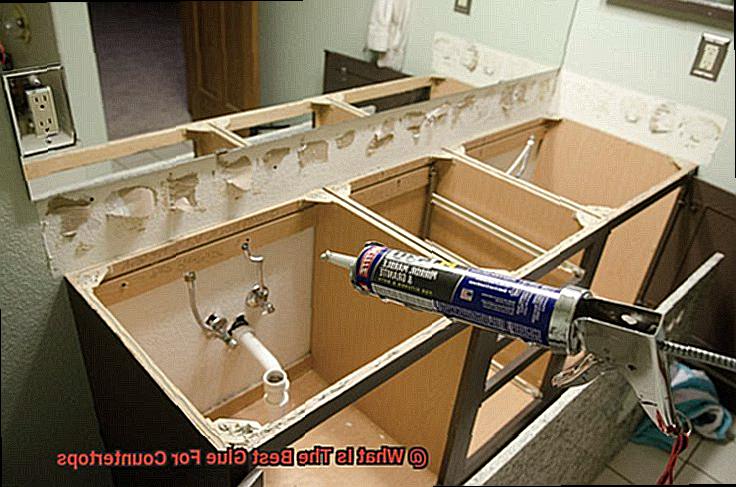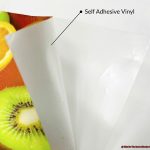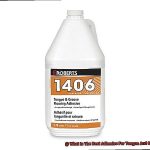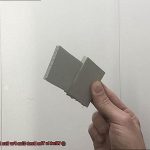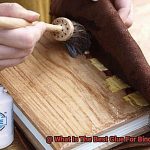Are you knee-deep in a countertop makeover and desperately seeking the ultimate glue to create a flawless, rock-solid connection?
Picking the right adhesive is like finding your countertop’s soulmate – it’s vital for durability and beauty. But with countless options out there, how do you find “the one” that suits your specific countertop material?
Fear not, my friend. In this blog post, we’ll dive deep into the world of countertop glue and arm you with expert recommendations to make your decision-making process a breeze.
Whether you’re dealing with granite, marble, laminate or quartz, we’ve got the perfect adhesive solution to ensure an impeccable bond that lasts for ages. Ready to turn your countertop dreams into reality?
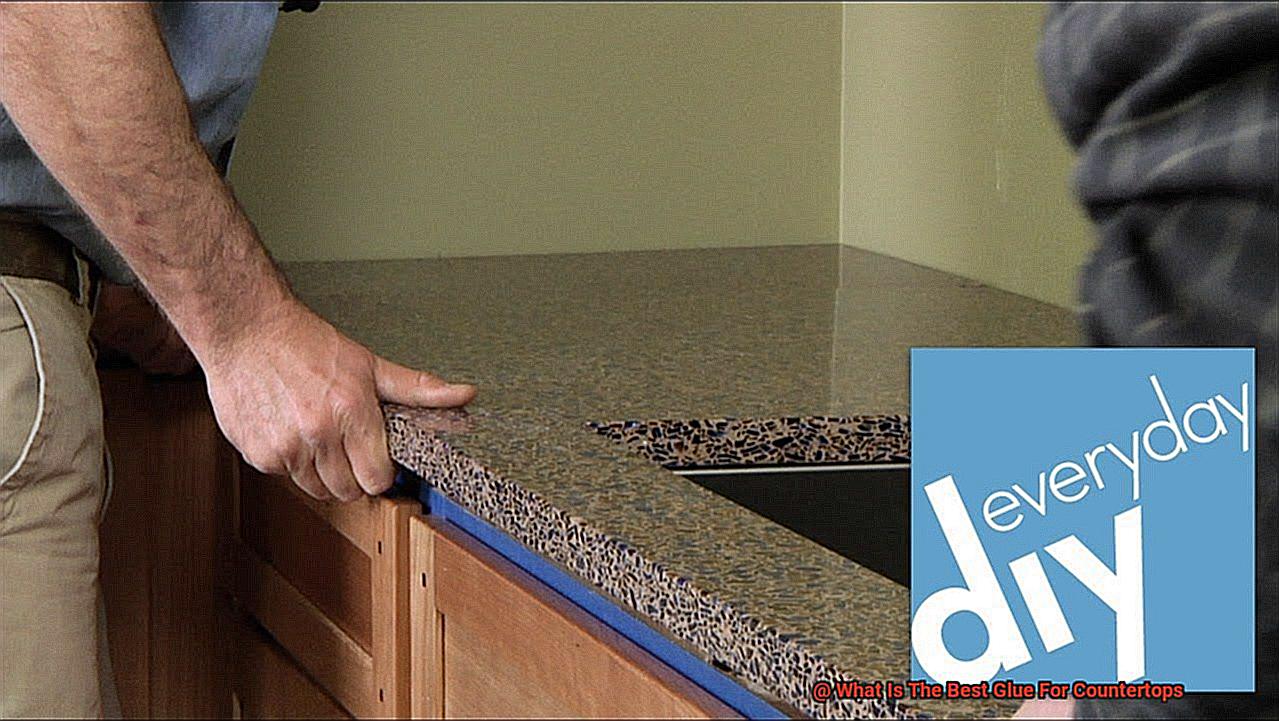
Keep reading to unlock the secrets of countertop success.
Different Types of Glue for Countertops
Contents
- 1 Different Types of Glue for Countertops
- 2 Advantages and Disadvantages of Each Type of Glue
- 3 Factors to Consider When Choosing the Best Glue for Countertops
- 4 Preparing Surfaces Before Applying Glue
- 5 Recommended Glues for Natural Stone Countertops
- 6 Recommended Glues for Laminate Countertops
- 7 Recommended Glues for Solid Surface Countertops
- 8 Following Manufacturer’s Instructions When Using Adhesives
- 9 Conclusion
When it comes to installing countertops, choosing the right glue is essential for a strong and durable bond. There are several different types of glue available, each with its own advantages and disadvantages. Let’s take a closer look at these different types of glue and what makes them unique.
Epoxy Resin: The Super Strong Bond
Epoxy resin is one of the most popular choices for countertop installation. It consists of a resin and a hardener that, when mixed together, create a powerful adhesive. Epoxy resin is known for its high strength and resistance to heat, moisture, and chemicals. This makes it an excellent choice for countertops in kitchens and bathrooms where spills and high temperatures are common. However, epoxy resin can be more expensive than other types of glue and requires careful mixing and application.
Adhesive Caulk: The Flexible Filler
Adhesive caulk is a flexible glue that is often used to fill gaps or seams between countertop pieces. It provides a watertight seal and helps prevent moisture from seeping into the joints of the countertop. Adhesive caulk is resistant to water, making it ideal for use in areas where spills are common, such as around sinks or cooktops. However, it may not provide as strong of a bond as other types of glue.
Construction Adhesive: The Heavy-Duty Bond
If you have heavy or thick countertops, such as those made of concrete or stone, construction adhesive is your best bet. This strong adhesive provides a durable bond between countertop materials. It is typically applied in a bead or line along the edges of the countertop and offers a permanent bond. Construction adhesive is perfect for busy kitchens or high-traffic areas where durability is crucial.
Contact Cement: The Laminating Glue
For laminate countertops, contact cement is the go-to adhesive. It dries quickly and forms a strong bond between the laminate and the substrate. Contact cement is applied to both surfaces and then pressed together to create a secure bond. However, contact cement can be tricky to work with as it requires careful application to ensure proper bonding.
Specialty Adhesives: The Material Match
Some countertop materials, such as granite or marble, require specialty adhesives recommended by the manufacturer. These adhesives are specifically formulated to provide a strong bond while being safe for use on sensitive materials. When working with unique materials, it’s crucial to use the appropriate adhesive to ensure optimal bonding strength.
In conclusion, choosing the right glue for your countertops is crucial for a successful installation. Consider factors such as the type of countertop material, intended use, and required strength and durability. Consulting with professionals or doing research specific to your countertop material will help you make an informed decision.
Advantages and Disadvantages of Each Type of Glue
Finding the right glue for your countertop is essential for a durable and long-lasting installation. With various types of glue available, each with its own strengths and weaknesses, it’s important to understand the advantages and disadvantages of each. In this blog post, we will explore the pros and cons of different types of glue commonly used for countertops, helping you make an informed decision.
Epoxy Glue:
Advantages:
- Exceptional strength and durability make epoxy glue perfect for heavy loads, heat, and moisture.
- Excellent resistance to chemicals ensures a long lifespan.
Disadvantages:
- Higher cost compared to other glues due to its superior performance.
- Requires precise mixing and application for optimal results.
Construction Adhesive:
Advantages:
- Provides a strong bond that prevents movement, ensuring stability.
- Affordable and easily accessible in hardware stores.
Disadvantages:
- May not offer the same level of bonding strength as epoxy glue.
- Holding power can weaken over time due to temperature changes or exposure to moisture.
Silicone Adhesive:
Advantages:
- Excellent flexibility allows for countertop expansion or contraction without compromising the bond.
- Resistant to water, making it suitable for wet areas such as bathrooms.
Disadvantages:
- Not as strong as epoxy or construction adhesive, limiting its use in heavy-duty applications.
- May not be suitable for countertops requiring high load-bearing capacity.
Contact Cement:
Advantages:
- Fast-drying and easy-to-use, forming an instant bond between surfaces.
- Ideal for laminate countertops due to its affordability and accessibility.
Disadvantages:
- Less strong than epoxy or construction adhesive, limiting its use in high load-bearing applications.
- Not suitable for countertops made of materials other than laminate.
Wood Glue:
Advantages:
- Provides a strong bond specifically designed for wood surfaces.
- Relatively inexpensive and easy to work with.
Disadvantages:
- Not suitable for countertops made of materials such as stone or laminate.
Factors to Consider When Choosing the Best Glue for Countertops
Choosing the best glue for countertops is a crucial decision that requires careful consideration. With numerous options available, it can be overwhelming to determine which glue will provide the best results. However, by considering certain factors, you can make an informed decision and ensure a successful installation or repair.
- Material Compatibility: Different countertop materials require specific adhesives. Granite, marble, quartz, laminate, and wood all have unique characteristics that necessitate different bonding agents. Ensure that the glue you choose is specifically designed to bond with the material of your countertop.
- Strength and Durability: Countertops endure daily wear and tear, so selecting a glue with strong bonding capabilities and long-lasting durability is essential. Look for adhesives labeled as high-strength or heavy-duty to ensure they can withstand the stresses of daily use.
- Ease of Use: Installing countertops can be complex, so choose a glue that is easy to use. Look for glues that come in convenient squeeze bottles or tubes for precise application without the need for additional tools. Consider the drying time of the glue to align with your project timeline.
- Non-Toxicity: Since countertops are often used in food preparation areas, it’s crucial to choose a non-toxic and food-safe glue. Look for adhesives that have been tested and certified as safe for contact with food to avoid any health risks.
- Color Matching: If your countertop has visible seams or cracks that need repair, color matching becomes important. Look for glues that offer a range of colors to closely match your countertop’s shade for seamless repairs.
- Resistance to Stains and Chemicals: Countertops are exposed to various substances, so it’s important to choose a glue that is resistant to stains and chemicals. Look for adhesives specifically formulated to resist common household stains and chemicals.
Preparing Surfaces Before Applying Glue
Today, we embark on a journey into the intricate world of glue and countertops. We all know that a strong and durable bond is the key to a successful countertop installation or repair. However, achieving this feat requires mastering the art of surface preparation. Fear not, for I am here to guide you through the essential steps of preparing surfaces before applying glue. So put on your DIY hats and let’s get started.
Step 1: Cleanliness is Key:
Before we jump into our gluing adventure, it’s crucial to ensure that our surfaces are squeaky clean. Bid farewell to dirt, dust, grease, and debris by using a mild detergent and water solution. This will create a pristine canvas for our glue to work its magic.
Step 2: Embrace the Roughness:
With clean surfaces in hand, it’s time to give them a little rough love. Take your trusty sandpaper with a medium grit and start sanding in gentle circular motions. This process creates a textured surface that offers more grip for the glue, resulting in a stronger bond. Trust your tactile sense of touch – when your surfaces feel slightly rough, you’re good to go.
Step 3: Banish Residue:
Sanding can be a messy affair, but fret not. Grab a clean cloth or sponge and wipe away any lingering dust or residue. We want our surfaces to be as pure as freshly fallen snow before we proceed with gluing.
Step 4: Smooth Out Imperfections:
Life isn’t perfect, and neither are countertops. If you come across any uneven or damaged areas during your surface inspection, it’s time to whip out the wood filler or epoxy putty. Fill those imperfections, let them dry completely, and watch as your surfaces transform into a flawless work of art.
Step 5: Say Goodbye to Old Finishes:
Sometimes, our countertops may sport an old, tired finish that needs to be bid adieu. Enter the world of chemical strippers or sanding. Follow the instructions on your chosen chemical stripper, or grab that sandpaper again and gently remove the existing finish. Safety first, folks – don’t forget to wear protective gear and ensure proper ventilation.
Step 6: Dry as a Desert:
Our final step is to ensure that our surfaces are bone-dry before we apply the glue. Moisture is the enemy of adhesive strength, so grab a clean cloth or exercise patience by allowing sufficient drying time. Trust me, it’s worth the wait.
Recommended Glues for Natural Stone Countertops
Look no further. Let me guide you through the world of glues recommended for this application, so you can make an informed decision and achieve a bond that will stand the test of time.
First on our list is the mighty epoxy adhesive. Known for its exceptional strength and bonding properties, epoxy adhesives are a top choice for natural stone countertops. Resistant to moisture, heat, and chemicals, they are perfectly suited for kitchen environments where countertops endure water exposure, heat from cooking appliances, and various cleaning agents. However, not all epoxy adhesives are created equal. Look for those specifically designed for stone applications. These two-part formulas need to be mixed before use, activating the adhesive and ensuring an unyielding bond.
Next up is the versatile polyurethane adhesive. Offering excellent bonding strength and resistance to moisture and chemicals, polyurethane adhesives are a force to be reckoned with. What sets them apart is their flexibility, allowing them to absorb movement or vibration without compromising the bond. Just like with epoxy adhesives, it’s crucial to choose polyurethane adhesives formulated for natural stone applications. Beware that some may not be suitable for porous stones like marble, as they can leave unsightly discoloration or staining.
And if you’re working with majestic granite countertops, specialized granite adhesive should be on your radar. These glues are tailor-made to bond granite, providing superior strength and durability. They are specifically formulated to suit the unique properties of granite, ensuring a secure and long-lasting bond.
When selecting a glue for your natural stone countertops, take into account factors such as the type of stone, expected use of the countertop, and the environmental conditions it will face. Consulting with a professional or knowledgeable salesperson at a reputable stone supplier can help you make the right adhesive choice.
Remember, proper surface preparation is key to achieving an unbreakable bond. Clean and roughen the surfaces to be bonded, and follow the manufacturer’s instructions diligently. Give the adhesive ample curing time before subjecting the countertop to heavy use or stress, allowing it to reach its maximum strength.
While the glue plays a vital role in securing natural stone countertops, proper installation techniques are equally essential. Consider enlisting the expertise of a professional installer experienced in working with natural stone countertops to guarantee a successful and enduring bond.
Recommended Glues for Laminate Countertops
Choosing the right glue is crucial for a secure and long-lasting bond. Let’s explore the different types of glues recommended for laminate countertops and discuss their advantages and considerations.
- Contact Cement: One of the most commonly recommended glues for laminate countertops is contact cement. It creates an instant bond when the surfaces come into contact. There are water-based and solvent-based formulas available. Water-based contact cement is safer and easier to work with due to its lower VOC content. Solvent-based contact cement provides a stronger bond but requires proper ventilation during application.
- Epoxy Adhesive: Another popular option is epoxy adhesive, which consists of resin and hardener components that need to be mixed before application. Epoxy adhesive offers excellent bonding strength and is resistant to water, heat, and chemicals. It’s ideal for high-traffic areas like kitchens and bathrooms. However, working with epoxy adhesive can be more challenging as it requires precise mixing ratios and a longer curing time.
- Specific Adhesives: Some manufacturers produce adhesives specifically designed for laminate countertops. These adhesives offer a strong bond for laminate materials and may have additional benefits like moisture and heat resistance. Check with the manufacturer of your laminate countertop for specific glue recommendations.
When applying glue to laminate countertops, follow the manufacturer’s instructions closely. Proper surface preparation, including cleaning and roughening if necessary, is crucial for success. Apply the glue evenly and allow sufficient drying or curing time before using the countertop.
Recommended Glues for Solid Surface Countertops
The world of adhesives is your secret ingredient to countertop success. Let’s dive in and explore the recommended glues that will ensure your countertops stay firmly in place.
First on the list is the superstar of adhesives – two-part epoxy adhesive. Known for its incredible bonding strength, this glue can withstand moisture, heat, and even the test of time. It’s a favorite among professionals and can be used both indoors and outdoors. With this adhesive in your toolbox, you can rest easy knowing that your countertops will stay securely in place.
Next up is polyurethane adhesive, a versatile option that offers a strong bond and excellent resistance to moisture, heat, and chemicals. Its flexibility makes it perfect for bonding materials with different expansion rates. So whether you’re dealing with temperature fluctuations or accidental spills, polyurethane adhesive has got your back.
Last but certainly not least, we have acrylic-based adhesives. These glues are specifically designed for solid surface materials and offer good bonding strength. Not only are they easy to work with, but when applied correctly, they provide a seamless finish. If you’re looking for a glue that’s tailor-made for your solid surface countertops, acrylic-based adhesives are the way to go.
But before you rush off to grab your glue gun, there are a few things to keep in mind. Always follow the manufacturer’s recommendations when selecting an adhesive. Different manufacturers may have specific requirements or recommendations for their products, so consult their guidelines for compatibility and optimal performance.
Proper surface preparation is also key to success. Ensure your surfaces are clean, dry, and free from any grease or contaminants that could hinder the bonding process. Don’t forget to test the bond on a small inconspicuous area before proceeding with the full installation. This allows any potential issues to be addressed beforehand, ensuring a flawless finished result.
Lastly, be patient and allow for proper curing time. The adhesive needs time to reach its maximum strength, so don’t rush the process. Give it the time it needs to set, and you’ll be rewarded with a long-lasting and secure bond that will keep your countertops looking beautiful for years to come.
Following Manufacturer’s Instructions When Using Adhesives
When it comes to using adhesives for countertops, following the manufacturer’s instructions is paramount. These instructions are not mere suggestions; they are a road map to success and durability. So buckle up and prepare to learn why it’s crucial to heed these instructions when working with adhesives.
First and foremost, let’s talk about surface preparation. Just as you wouldn’t construct a house on an unstable foundation, you shouldn’t apply adhesive to an unprepared surface. The manufacturer’s instructions will guide you on how to properly clean, sand, and prime the surface before applying the adhesive. Skipping these steps can lead to disastrous outcomes, compromising the strength and longevity of the bond.
Moving on to application techniques. Each adhesive product has its own specific method of application. Some may require a notched trowel for even spreading, while others may call for a zigzag pattern. Following these techniques ensures proper coverage and bonding between the countertop and the adhesive. Winging it is not an option here – precision matters.
Now let’s discuss curing time. Patience truly is a virtue in this case. Rushing the curing process can weaken the bond between the countertop and the adhesive, jeopardizing its stability. The manufacturer’s instructions will provide an estimated curing time, which should be strictly adhered to. Waiting it out will guarantee that your countertops stay firmly in place for years to come.
Temperature and humidity conditions also play a vital role when working with adhesives. Some adhesives thrive in specific temperature ranges or humidity levels for optimal bonding. Ignoring these guidelines can result in slow drying or inadequate adhesion, leaving your countertops vulnerable to damage. So pay attention to those details – your countertops will thank you.
Lastly, safety should never be overlooked. Adhesive products often contain chemicals that can be harmful if mishandled. It is imperative to wear protective gloves and goggles or work in a well-ventilated area. We want your countertops to look stunning, but more importantly, we want you to stay safe and healthy throughout the process.
ezx-PUPur3M” >
Conclusion
In conclusion, when it comes to finding the best glue for countertops, there are a few top contenders that stand out.
One option is epoxy adhesive, known for its strong bond and durability. Another popular choice is construction adhesive, which offers excellent adhesion and versatility.
Ultimately, the best glue will depend on the type of countertop material and the specific needs of your project.

